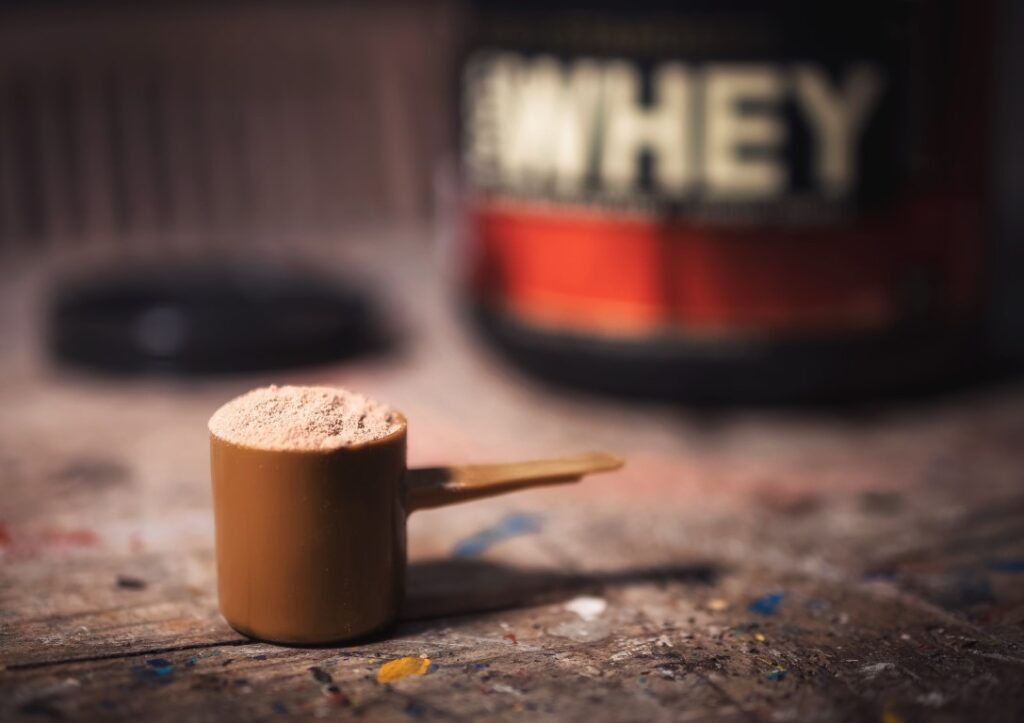A staple of post-workout nutrition for athletes of all sizes and shapes, nutrition-packed protein shakes are consumed by everyone from bodybuilders who lift heavy weights to long-distance runners. Taking protein supplements can help you gain muscle. The powder can speed up recovery from resistance and endurance exercises when used before and after a workout.
Their biggest benefit, according to clinical and performance dietitian Renee McGregor, is convenience. “They are convenient and helpful in instances where food availability is constrained or when a person finds it difficult to eat actual food before or after an exercise,” says the author.
According to Trusted Source from 2014 research, protein supplements like these powders can help lessen muscle soreness and prevent muscle damage after regular workouts. With sales of $4.7 billion in 2015, protein powders overtook sports drinks as the second-largest selling product in the sports nutrition sector.
In 2021 research increased protein intake each day might lessen degeneration during intense training, according to a dependable source with competitive soccer players.
10 benefits of the supplements are as follows:
- Blood Sugar Stability: Increased Energy and Decreased Fatigue
- Fewer sweet and snack food cravings, improved weight management, and fewer energy swings
- Improved post-session and post-event recovery
- A greater powder to weight ratio results from increased muscle growth and decreased chance of muscle loss.
- Increased resistance, fewer days of inactivity, and interruptions to training
- Reduced risk of osteoporosis and maintenance of healthy bones
- Enhancing metabolism and fat-burning capacities to help you achieve a slim body
- Helps with damage repair and quickens recovery
- Improved muscular contraction and neuronal function
- Higher fullness due to decreased ghrelin (the hunger hormone) levels caused by decreased hunger
.There are mainly 5 types of protein powders that hold a position in the industry :
PLANT-BASED
Combinations of a pea, hemp, soy, pumpkin, flax, fava, potato, corn, and brown rice protein may be found in plant-based protein powders. Options made from plants are free of dairy, whey, casein, and eggs. Key amino acids for developing muscle such as leucine, lysine, and/or methionine may be depleted in plant-based powders.
Plant-based proteins could offer the same amount of leucine by varying the protein intake; plant-based the protein intake, plant-based proteins could offer the same amount of leucine. In contrast, the dietary protein intake of the other plant-based proteins would need to be raised to 33 g (potato), 37 g (brown rice), 38 g (pea), 40 g (soy), and 54 g (hemp) due to the higher leucine content of corn, which requires 20 g of protein to produce 2.7 g leucine.

WHEY
Whey is a by-product of producing cheese and is the most popular type of protein powder. The most researched protein drink is whey, which has the advantage of being fast absorbed by the body, which can immediately boost muscle protein synthesis, according to McGregor. Try to choose a protein powder with a reduced sugar level when making your purchase because some whey drinks are loaded with sweet stuff.
Dairy-derived whey protein powder is relatively fast and readily digested and absorbed. Whey protein is a wonderful option for athletes since, when used in conjunction with resistance exercise, it may help enhance muscle mass, support growth, and speed. Branch-chain amino acids (BCAAs), which are abundant in whey and may hasten muscle recovery, are another benefit. Whey protein has the largest necessary amino acid content (43%), compared to other animal-based proteins (5). Whey protein can be found in the forms of concentrate, isolate, or hydrolysate, though many supplements combine all three. 2.7 g of leucine are typically present in 25 g of whey protein.

CASEIN
Whey is the soluble portion of milk, while casein is insoluble. Because of this, it digests more slowly than whey protein and, according to McGregor, can promote repair for a longer period of time. Because of this, McGregor notes, it has been recommended that casein-based drinks be drunk before bed. She does, however, note that drinking milk might have a comparable effect.
Dairy-based casein protein powders are a fantastic choice for muscle growth and improving sleep when consumed before bed since they are digested and absorbed more slowly and keep you feeling fuller for longer. Whey contains more necessary amino acids (43%) than casein (34%). (5). Due to its bigger molecule size, casein may be harder for certain people to digest and may cause digestive problems.
EGG
Since egg white protein is paleo-friendly and has a higher amino acid concentration (32%) than many plant-based proteins, it is excellent for people who are allergic to or intolerant to dairy products. Because it is more difficult to create, it is not as readily available or sold in health food stores. A 30-gram serving of egg white typically contains 26 grams of protein.

COLLAGEN
A 20-gram serving of collagen peptides contains 18 grams of protein, zero carbs, and no fat. Collagen is also excellent for bone, joint, and ligament health. Collagen can be added to protein powders or consumed before exercise to promote tissue healing because it has a different amino acid profile than protein powders.
